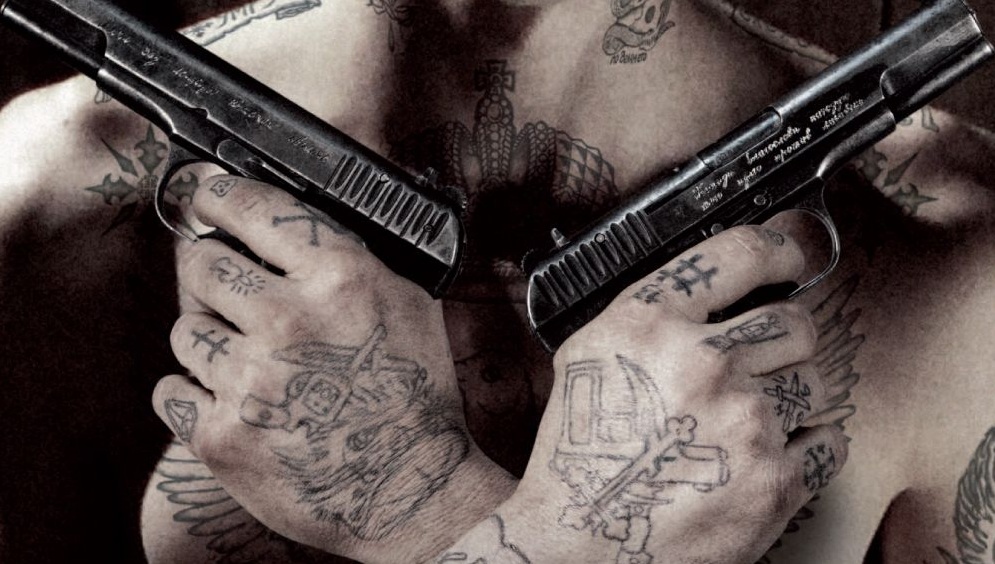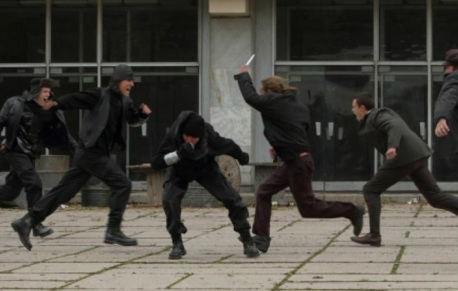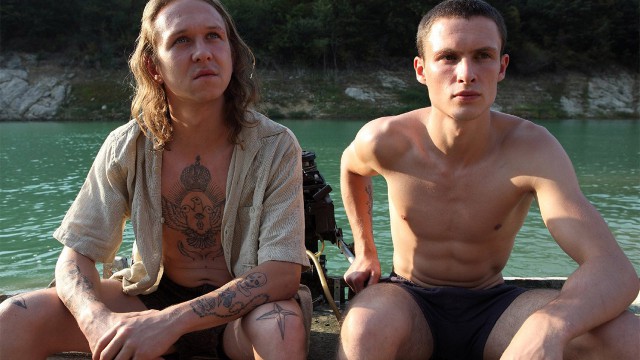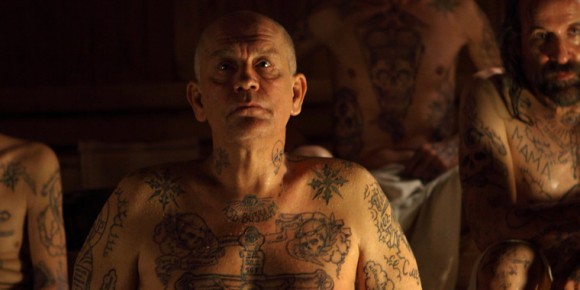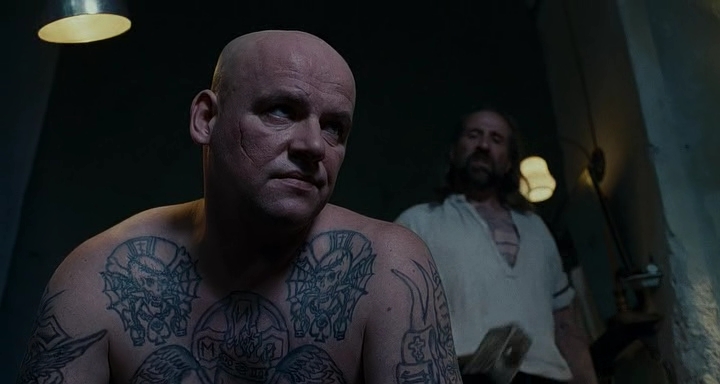|
Based on Nicolai Lilin’s memoir of the same name, Siberian Education tells the tale of a large group of professional criminals that are ejected from their home country. They quickly form their own “Urka” communities: cities of thieves with their own strict moral codes but who operate outside of conventional laws. The most feared of these is the Siberian clan. Directed by Italian Gabriele Salvatores whose previous films include the Oscar-winning Mediterraneo (1991) and the Golden Berlin Bear nominated I’m Not Scared (Io non hop aura 2003), the film follows a group of young boys as they grow up in the commune and the effect that criminal teachings have on their life choices. The narrative moves back and forth across the life of Kolyma (Arnas Fedaravicius) and we witness the struggles he faces as his strict morality comes into conflict with that of his best friend Gagarin (Vilius Tumalavisius), a psychopath who rejects even the Urka laws.
The majority of the narrative takes place in Transnistria, a break-away province that runs the length of the Moldovan-Ukraine border, more than 1600 miles from the nearest part of Siberia. A central idea revolves around how a culture can hold onto its roots despite being uprooted and the ethical and moral issues that arise as a result of being taught by law-breakers. Siberian Education deals with these issues eloquently yet violently but as the film progresses, it becomes less about community and takes a somewhat bizarre turn into a coming-of-age buddy movie, complete with scenes of goofing around to a pop-punk soundtrack. This juxtaposition of violence with everyday banality comes as a shock and it can be difficult at times to know what you are watching. While this may be intentional on the part of the filmmakers to echo how violence is normal to this group of criminals, it comes across as nostalgic and forcibly sentimental. The film sees many new faces struggle with Russian accents while they swig on pretend vodka wearing Ushankas in the snow. While doing nothing for stereotypes, the film does allow a space for Peter Stormare (who plays Ink, master of tattoos) and John Malkovich as Grandfather Kuzya to create brilliantly creepy characters that are the highlight of the film although, regrettably, not central to the plot. Italo Petriccione’s beautiful cinematography with sweeping tundras and frozen rivers is often more captivating than the story. The editing is another highlight, skilfully intercutting between events to draw attention to the skewed morality of the group and back and forth through time to slowly reveal more plot. This, however, encourages minimal narrative set-up and pay-off. Events that happen at the beginning of the film seem to have little or no relevance while other events are hurriedly explained the split second before the narrative requires them to be. Uncorrelated events of a story unfold perhaps as they would in real life but have the effect of watching an un-structured plot with limited direction. At times the film forgets the Urka culture altogether in favour of trying to tell a story that could have been set anywhere in the world. This is a key problem with Siberian Education. It tries to juggle too many themes and never really gets it right with any of them. The result is frustrating. With potential in an interesting story that often captures attention and interest, Siberian Education ultimately tries to do too much and fails to deliver on its promising premise as a result. |

